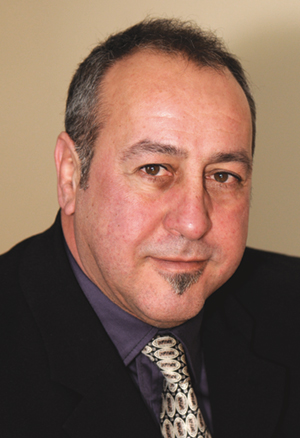You’d have a hard time finding anyone around Queen’s Park who doesn’t understand why ombudsman André Marin isn’t getting a third term.

Arguably, he’s the worst civil servant in memory from the government’s perspective. He’s aggressive, isn’t shy about shouting out his achievements, and doesn’t tend to back down even when it’s politically prudent to do so. He rocks the boat too much and is politically incorrect. In short, he was the perfect ombudsman.
Still, the Liberal government refused to grant his third term as it teamed up with the Progressive Conservatives to block his appointment at the all-party committee struck to review candidates for the job.
It’s no surprise. Marin has been on borrowed time since May when his term officially expired with an extension through mid-September to give the committee time to review his case for a third appointment or select from other candidates.
Marin has been controversial from the start, but you have to think it comes with the territory. He’s a former assistant Crown attorney and part-time Ottawa law professor. As director of the Special Investigations Unit in the 1990s, he came under criticism for rarely laying charges and obtaining convictions, (although, to be fair, police aggressively fought the imposition of his agency). In 1998, he became Canada’s first military ombudsman and again came under fire for his management style.
He’s no shrinking violet, but in watching him over the last 10 years, what does come through is his passion for the job. He was never going to be a meek and mild civil servant working away in the shadows.
Nevertheless, the government put Marin in the awkward position of having to apply for his own job and while he made it past two interviews and his references were laudatory, the Liberals were clearly out to get rid of him. Ironically, since the committee can’t agree on any of the candidates other than Marin, the process will start again with deputy ombudsman Barbara Finlay taking over on an interim basis.
Given his history, it was no surprise when Marin called a press conference to make his public farewell.
He’s never been shy about tweeting or promoting his opinions.
“I had every reason to believe I would be selected for the job,” he said. “Until last week. The process was as leaky as a sieve. It was tabled as arm’s length to select the best person for the job but it now appears the process was shambolic. The integrity of the selection process was compromised by crass politics.”
In short, he said, they weren’t seeking the best person for the job and, in fact, he was the target of a campaign to choose anyone but him. It’s ironic, he said in his press conference, because he had assurances that everything was fine and, given an exhaustive reference check, it seemed logical an offer was coming.
For his part, Marin said he had discharged his duties under the Ombudsman Act that required him to report annually and through special reports.
The government introduced the act in 1975 and, aside from recent changes authorizing investigations in a few additional areas, hasn’t updated it. One of the glaring gaps Marin has been pushing to close is to win the right to probe the broader public sector more fully. As of Jan. 1, the ombudsman will also have the authority to deal with complaints involving universities.
Ironically, since he won the right to investigate issues at school boards as of Sept. 1, his office received 50 complaints even before classes had started.
“Being an ombudsman is not an easy job,” he said. “I’m not here to please the powers. It’s not a popularity contest. If I was the government, maybe I wouldn’t like me either. I don’t expect to be invited to tea with the premier. I just expect them to be fair with the process and they haven’t been. Under the Ombudsman Act, it is supposed to be politics free and impartial.”
He also hasn’t helped his own case much. In May, when he reapplied for his job, he took to Twitter and then retweeted ensuing tweets that called Ontario a “banana republic” while others suggested the government was as corrupt as the Fédération Internationale de Football Association.
Granted, it’s not the kind of strategy most people would undertake in a job application, but this is no ordinary job. We haven’t heard the last from Marin, and that’s a good thing.
Ian Harvey has been a journalist for more than 35 years writing about a diverse range of issues including legal and political affairs. His e-mail address is [email protected].

 Arguably, he’s the worst civil servant in memory from the government’s perspective. He’s aggressive, isn’t shy about shouting out his achievements, and doesn’t tend to back down even when it’s politically prudent to do so. He rocks the boat too much and is politically incorrect. In short, he was the perfect ombudsman.
Arguably, he’s the worst civil servant in memory from the government’s perspective. He’s aggressive, isn’t shy about shouting out his achievements, and doesn’t tend to back down even when it’s politically prudent to do so. He rocks the boat too much and is politically incorrect. In short, he was the perfect ombudsman.